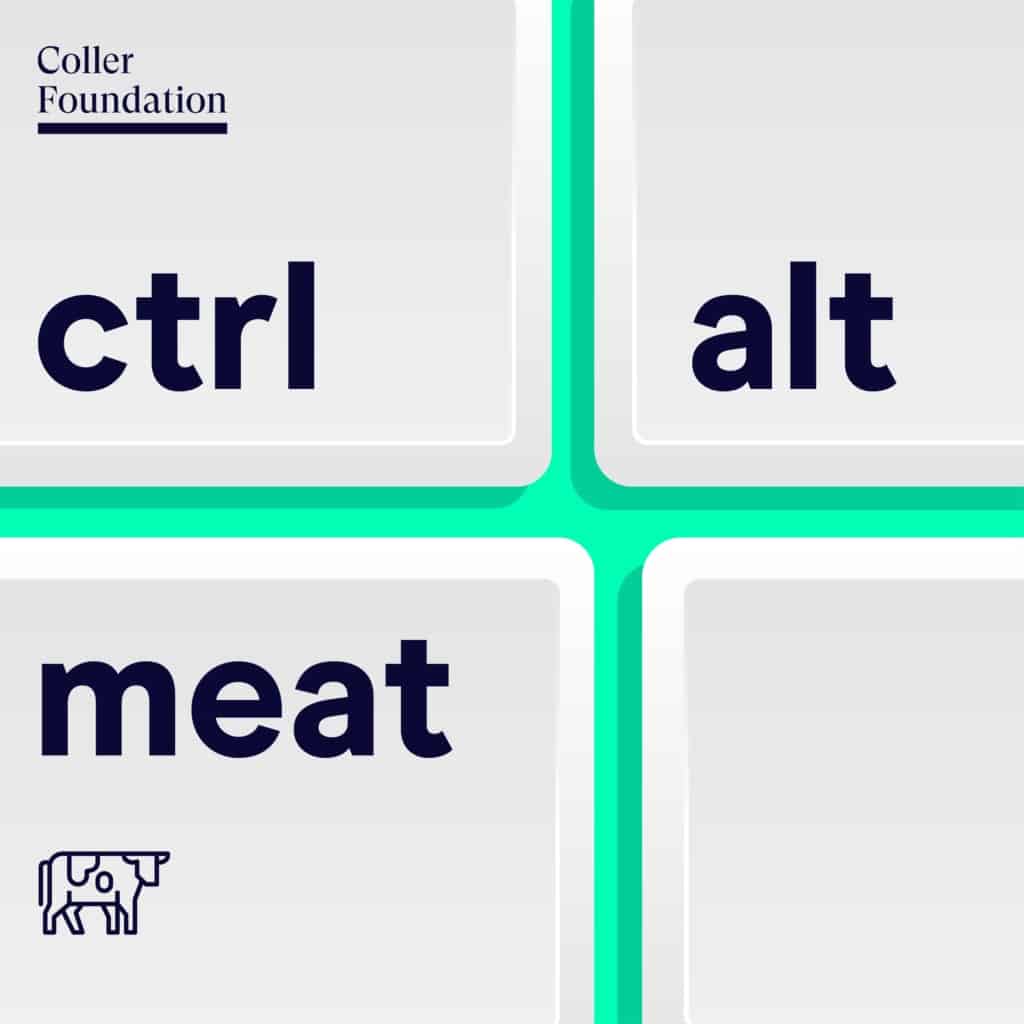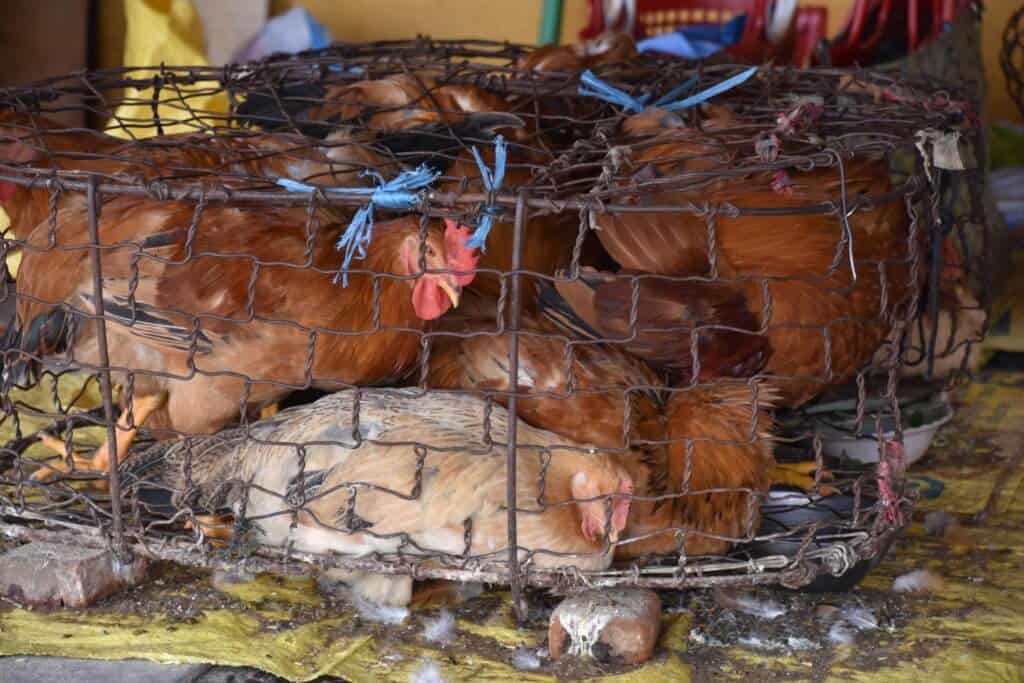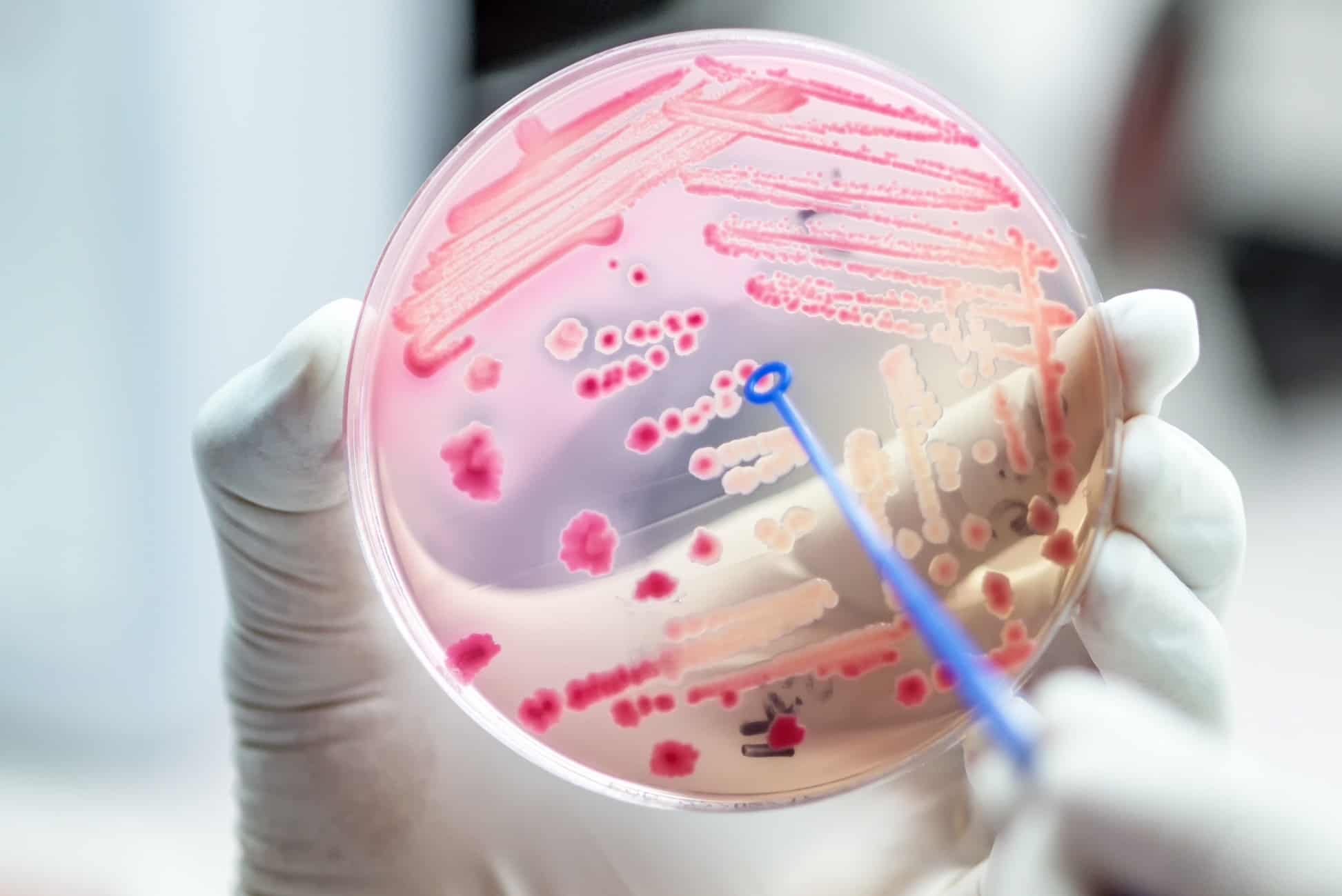Last year’s word of the year, according to Merriam Webster, was ‘vaccine’, which followed ‘pandemic’ in 2020 and ‘climate emergency’ in 2019. It reinforces the sense that our health and our climate are at the forefront of public concerns – and nowhere are these issues more interconnected than in our global food system.
Last month saw both World Health Day and Earth Day, so it’s a timely moment to consider how we can address and improve human, animal and planetary health by improving the food system. In particular through addressing emissions and land usage, disease outbreak and antimicrobial resistance (AMR).
These are topics covered widely by antibiotics expert Dr Lance Price and investigative journalist Andrew Wasley in the podcast produced by the Jeremy Coller Foundation, Ctrl, Alt, Meat.

Pandemic prevention
75% of new diseases are of zoonotic origin, meaning they transfer from animals to humans. Intensive animal agriculture is of strategic importance in reducing emerging disease risk, with the COVID-19 current global pandemic that has claimed the lives and livelihoods of millions of people highlighting the importance of prevention, rather than response.
As highlighted in FAIRR’s recent Policy Paper, Industry Reinfected, to act preventatively against further disease outbreaks, food safety and biosecurity regulation must be improved, as should the availability and range of alternative proteins. Reduced demand for animal protein would lead to less overcrowding in factories, lessening the likelihood of rapid disease outbreaks. United Nations research shows 4 of the 7 human-mediated factors most likely to drive the emergence of a new zoonotic pandemic are directly linked to agricultural intensification and increasing meat consumption.
Climate change heightens the risk of zoonotic disease outbreaks. Temperature increases mean disease-carrying insects cover greater distances and more extreme weather events increase the spread of disease.

Climate Change is already seriously impacting our food system
Approximately 22% of global greenhouse gas emissions come from agriculture, forestry and other land use, with food systems associated with roughly 42% of global greenhouse gas emissions.
This hurts human health as well as the climate. As atmospheric carbon levels increase, humans suffer from more frequent and extreme respiratory diseases, heart problems and premature death. Moreover, as emissions increase so do the detrimental effects they have. Heat stress as a direct result of higher atmospheric emissions negatively affects animal productivity and mortality.
According to the latest IPCC report published this month, heat stress among livestock in a warmer world could wipe up to 20% off the global value of beef production by the end of the century. The IPCC estimates the USA, UK and West Africa may lose up to 17% of milk production by the end of the century because of heat stress. By consuming more alternative protein sources in place of animal proteins, we can significantly reduce our needs for crop-based animal feed, lessening the economic impact our food system is likely to suffer.
The silent pandemic
As discussed in detail in the Ctrl, Alt, Meat podcast, antimicrobial resistance (AMR) has been dubbed the “silent pandemic”, and refers to the emergence of superbugs that are resistant to antibiotics. The majority of global antibiotics are used in animal agriculture (approx. 70%) for unnecessary purposes like growth promotion or the prevention of disease (prophylaxis). Andrew Wasley calls for “much faster and tougher action across the board if we’re to successfully combat the issue”.

The importance of reducing antibiotics has been emphasised by the recent EU legislation that prohibits the prophylactic use of antibiotics in animal agriculture. In her Ctrl, Alt, Meat episode, Phillipa Thornton explains that by 2050 there is projected to be an 11% loss to livestock production in developing countries, affecting the livelihoods of millions. The impact on human health is also direct: AMR already causes 1.27 million deaths globally, and this figure is anticipated to rise. Fiona Reynolds speaks to this in Ctrl Alt, Meat: “It petrifies me that I might go to hospital with cancer, receive the best cancer treatments in the world, but what I’m going to die of is my body being resistant to antibiotics, something we thought we’d solved a long time ago but we’re not using them properly.”
So what’s the solution?
The level to which planetary and human health are interconnected must not be underestimated, and to optimise one, we must focus on both. Pressure must be applied to the animal agriculture industry for reform, both from outside stakeholders and insiders. With a united front, consumers, investors and the sector itself can bolster efforts to protect both our health and the health of the planet.
Katie Briefel is the presenter of Ctrl Alt Meat, a weekly podcast produced by the Jeremy Coller Foundation, exploring the issues reshaping the global food business. This monthly column will provide more insights and information on the future of our food systems. Listen to the full episodes of Ctrl Alt Meat, available on Spotify, iTunes and most major podcast platforms.





